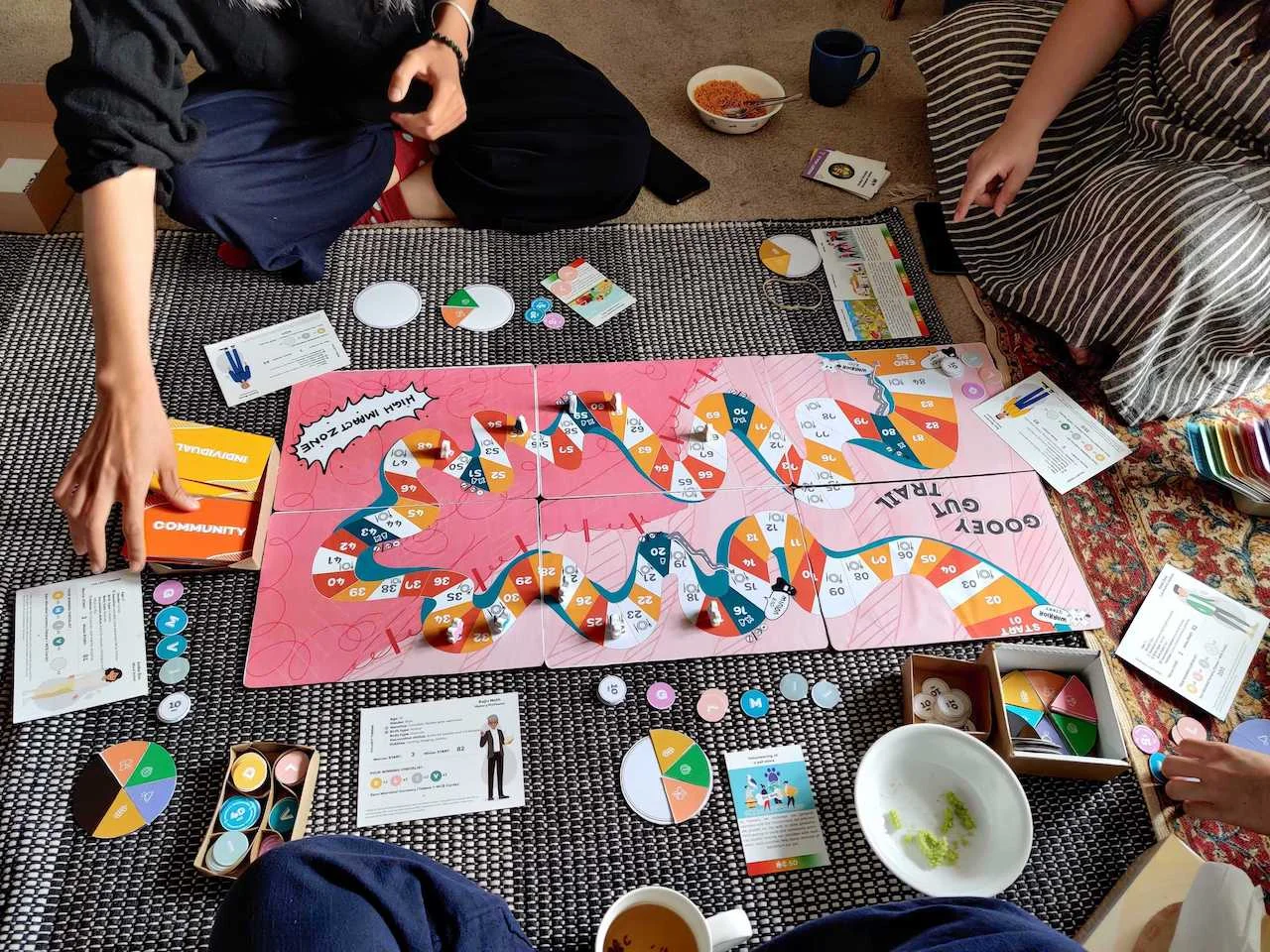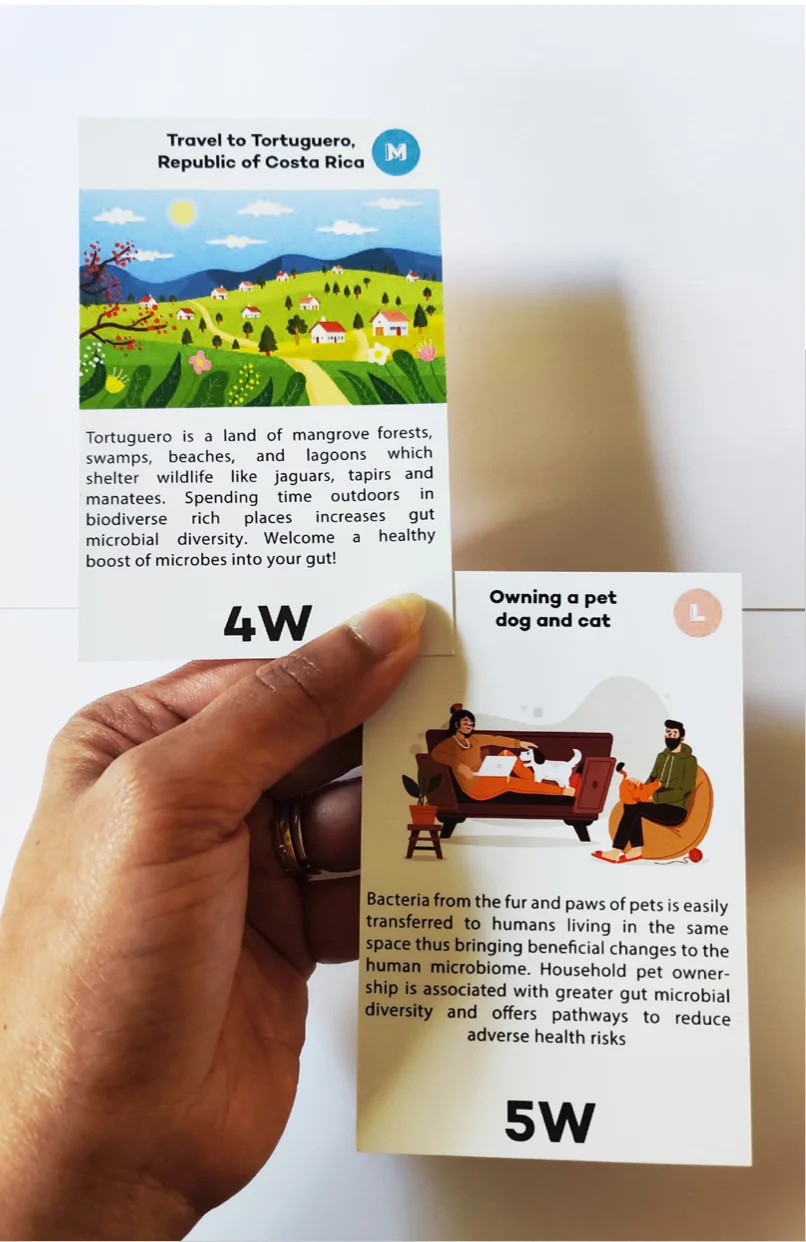Gooey Gut Trail
Made with ❤️ by Nandini Pasumarthy, Rohit Ashok Khot, Yi Ling (Ellie) Tai & Jessica Danaher

The term "gut health" dominates social media, yet a profound understanding of its intricacies remains elusive among the general public. Traditional information sources, laden with scientific complexities, often fail to resonate with a broader audience. Enter Gooey Gut Trail (GGT), a groundbreaking PhD research project that harnesses interactive play experiences to engage and stimulate reflection on human gut health, transcending conventional dietary perspectives.
What makes Gooey Gut Trail unique?
GGT transcends the confines of dietary considerations, shining a spotlight on a comprehensive array of factors influencing gut health. Employing card decks, meeples, factor tokens, and a game board, GGT ingeniously simulates real-world scenarios and activities impacting gut bacteria. Leveraging design fiction, the game unfolds as a relatable and reflective space for understanding gut health.
Gooey Gut Trail in Action
Informed by Literature and Game Design
Grounded in the realms of gut health literature, sociology, and game design concepts, GGT pioneers a fresh approach to disseminating scientific knowledge. Focused on fostering "functional scientific literacy," the game equips players with practical skills grounded in scientific insights. In stark contrast to conventional sources, GGT transforms learning about the gut's interrelation with factors like diet, lifestyle, environment, and emotions into a playful and engaging experience.
Contextual Understanding for Broader Impact
Recognizing the impact of contextual presentation, GGT integrates real-world scenarios into gameplay, illustrating the socio-spatial elements affecting gut health. By immersing players in bio-diverse landscapes, rich organic soil, forest air, and public spaces, the game imparts a contextual understanding crucial for unraveling the complexities of gut health.




Refined and Sustainable Design
In the pursuit of a seamless user experience, GGT underwent meticulous play-testing during the design phase. Utilizing hybrid tools, combining physical and digital components, the final product emerged as a testament to sustainable design practices. Crafted from eco-friendly materials like cardboard, air dry clay, MDF board, and repurposed containers, GGT aligns with the team's commitment to minimizing environmental impact.
Positive User Experience and Behavioral Impact
Field studies revealed that users not only gained a newfound understanding of gut health intricacies but also enjoyed an immersive experience. The positive user-experience facilitated meaningful reflection, prompting participants to reconsider personal habits influencing gut health. GGT, with its scientifically infused game mechanics, interactions, and aesthetics, emerges not only as an educational tool but as a catalyst for behavioral change, steering individuals toward a path of improved gut health awareness.
A Glance into Well-being
In summary, Gooey Gut Trail (GGT) is an innovative PhD research project that utilizes interactive play experiences to educate and engage individuals in understanding the complexities of gut health. By presenting a holistic view and breaking down barriers, GGT empowers individuals to make informed choices and take control of their gut well-being.
Gooey Gut Trail CHI PLAY 2022 conference presentation

